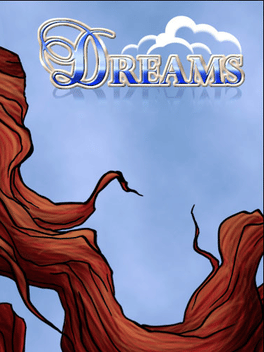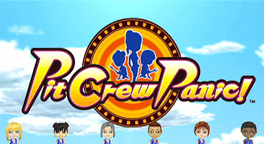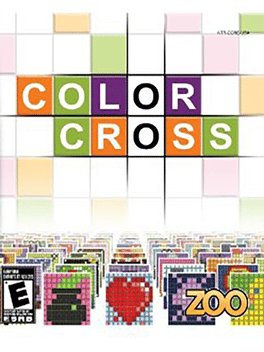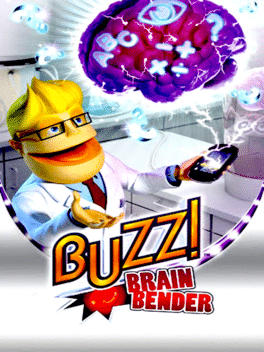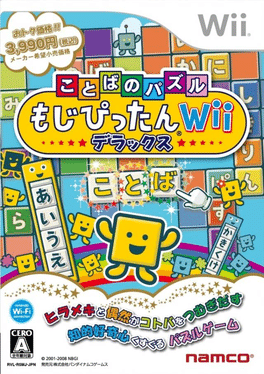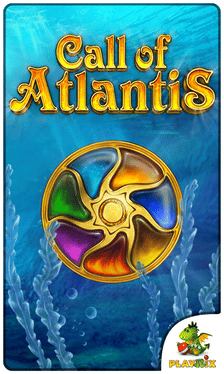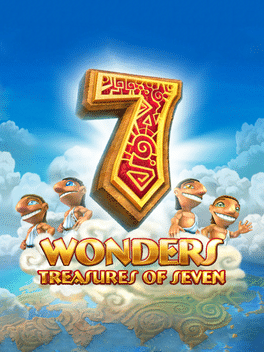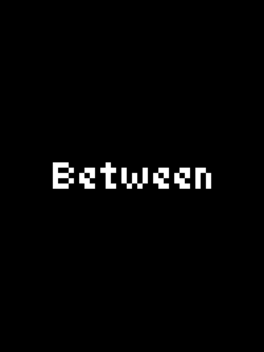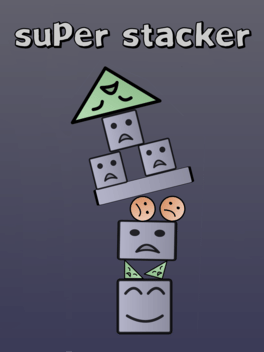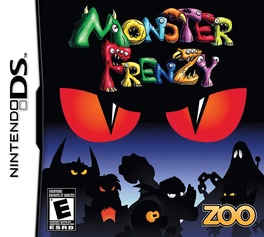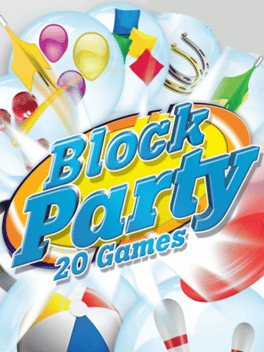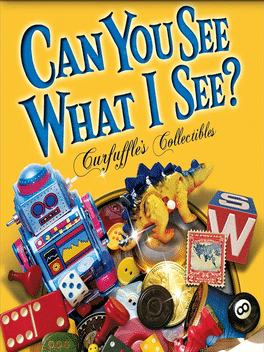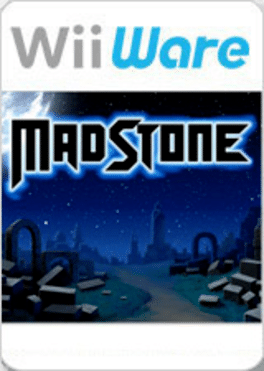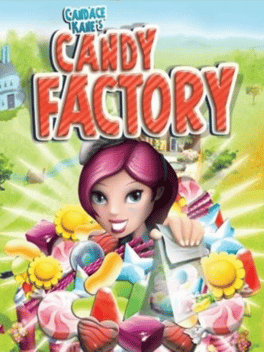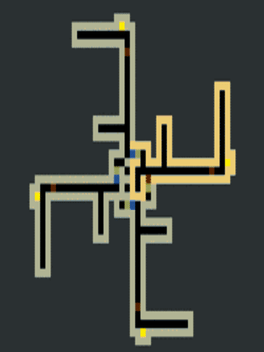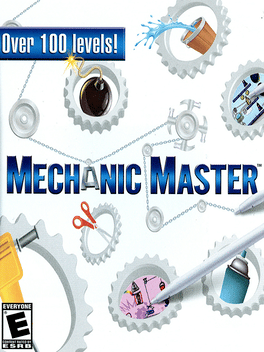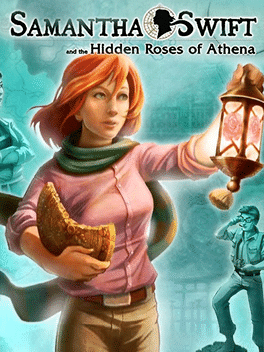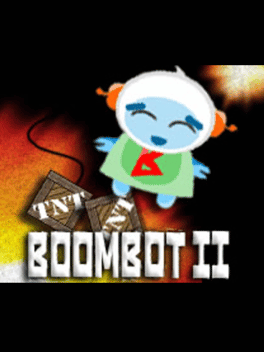New Ps3 Games - Page 223
-
Dreams
2008
Dreams
2008
A soothing spot the difference game. Each play will result in a difference experience with new differences being shown. -
Pit Crew Panic!
2008
-
Color Cross
2008
Color Cross
2008
star 4.3Color Cross is a challenging puzzle game where the goal is to uncover the hidden picture by applying the right color to the appropriate square. Utilizing the familiar "paint by numbers" picture logic puzzle mechanic, completing a grid will reveal a portion of a larger hidden image as well as unlocking increasingly difficult challenges. With over 150 individual grids to unlock, Color Cross provides hours of brain-teasing gameplay that is colorful in more ways than one. -
Buzz! Brain Bender
2008
Buzz! Brain Bender
2008
star 6Nothing bends your brain like Buzz! Give you and your friends a mad mental workout with Buzz's brain-bending pocket puzzles on PSP. Buzz swaps his trademark suits and the bright lights of the studio for a lab coat and clipboard in Buzz!: Brain Bender - a light, entertaining and humorous way to give your brain a workout. Colourful, entertaining brain games, designed to be instantly understandable, fast-paced and accessible for all ages let you test your cognitive mojo or take on specific challenges. Once you've greased the wheels, Buzz!: Brain Bender lets you take on all comers with the entertaining Pass Around Brain Battle mode for up to six players, where one PSP is passed between players. Challenge your mind in 16 brain-bending mini-games across four fun categories: Analysis, Observation, Memory and Calculation Take the test and find out how powerful your brain is, collect Boffin Awards or try out the various challenges for the ultimate brain game fix Take on up to six friends on just one PSP with the exciting -
Professor Heinz Wolff's Gravity
2008
star 5.3Professor Heinz Wolff's Gravity is an exciting puzzle game released on Nintendo Wii and Nintendo DS. Although there are subtle differences between each version, they all contain 100 puzzles of varying difficulty for you to solve. As the name suggests, these puzzles involve using gravity and other properties of physics to solve them. Gravity is suitable for the whole family and is a fun way to keep your mind at its sharpest! -
Call of Atlantis
2008
Call of Atlantis
2008
Atlantis is calling out to a true hero to save it from deadly peril in this long-awaited 3rd installment in the hit Atlantis Quest, The Rise of Atlantis series offering a unique blend of 3 popular gameplays. Set out on an exciting new quest in this spectacular mix of Match-3, Hidden Object and Adventure. Embark on a fascinating new journey around the ancient lands of Rome, Greece, Troy, Phoenicia, Babylon, Egypt and Carthage to acquire seven mysterious crystals of power. Appease Poseidon, the patron god of the Atlanteans, and save the legendary continent. -
7 Wonders: Treasures of Seven
2008
star 7Match runes and break blocks as you build the world`s most wondrous structures in this ground-breaking Match 3 game! Rotate the game cubes to unlock each level with your keystone. Challenge your mind with intense, multi-layered puzzle cubes. Fill your life with wonder; buy 7 Wonders: Treasures of the Seven! -
Between
2008
Between
2008
Between is a disjunct cooperative multiplayer game that takes place in an abstract, side-scrolling world where a character can be controlled. In the distance, a shimmering image of a tower is shown. It consists of blocks, each with a different squared pattern of colors. The aim of the game is to build the tower according to the pattern, but it is impossible to complete it without the help of the other player who has the same goal, but who is not visible on the player's screen. -
Art Style: Cubello
2008
Art Style: Cubello
2008
star 7.8In CUBELLO, using the pointer function of the Wii Remote players aim and launch colored cubes at a three-dimensional object called a Cubello, itself consisting of many colored cubes, that floats and rotates in empty space. The object of the game is to strip the Cubello of cubes by matching four or more of the same color in order to reveal the Cubello's inner core. The player is initially given only a limited number of cubes in a "magazine" to complete the objective in each stage, but more cubes are added in the magazine to the player the more cubes they take away from the Cubello. However, unlike many other games, such as Puzzle Bobble, where the goal is to eliminate objects of certain colors or shapes, Cubello continues to provide the player with cubes colors that are either still in the magazine or on the stage, so the player has to calculate to have the color disappear from the magazine and the stage at the same time to win. There is also a "Bonus Mode" on the slot machine device that gives the player unlimited -
Super Stacker
2008
-
Monster Frenzy
2008
Monster Frenzy
2008
Monster Frenzy is a visual comic stylized platform puzzle romp aimed at the casual gaming market that comes complete with its own wacky backdrop story, packed full of mini games, a loveable cast and loads of surprises that will keep your thumbs and fingers pinned to the control pad. -
Block Party: 20 Games
2008
A collection of motion control mini-games themed around a neighbourhood party. -
Can You See What I See?: Curfuffles Collectibles
2008
In Can You See What I See??, we meet poor Clyde Curfuffle, proprietor of Curfuffle`s Collectibles. He`s suffered a fire, a flood, and a nasty fall that`s put him in the hospital. The string of bad luck events just won`t stop, and he needs your help to save his collectibles shop! One of his favorite collectibles may sell for a lot of money, but you have to find out which one! Seymour will help you fill orders, find rare items and solve the secret code to unravel the mystery. -
Madstone
2008
Madstone
2008
MadStone is a puzzle game in which players must break apart blocks to help special gems (called MadStones) drop down to a pool at the bottom of the screen through their own weight and gravity. Players use the D-pad on the Wii Remote to move an onscreen cursor to select which blocks to break, and can also cause an earthquake that breaks up random blocks by shaking the Wii Remote. The game also features a versus mode against the computer or a second player in addition to the single player arcade mode. -
Candace Kane's Candy Factory
2008
Candie has just inherited her uncle's old candy factory and is trying to make her way to the International Candy Cup Championships. Working with Candie, you'll have to speedily create customized candy orders for each customer that enters your shop. Upgrade and customize the factory with special machines and gadgets. It won't be all sweet treats -- you'll also need to fend off rivals who attempt to sabotage your career. -
Portile
2008
-
Mechanic Master
2008
-
Samantha Swift and the Hidden Roses of Athena
2008
On a quest to recover the Scepter of Zeus for The Museum of Lost Secrets, archeologist and adventurer Samantha Swift stumbles upon one of the greatest archeological finds of all time! Unfortunately, she also runs into greedy treasure hunter Ravena Stryker. -
Boombot 2
2008
Boombot 2
2008
Boombot 2 is a physics-based sequel puzzle game where players are tasked with guiding the titular character through diverse levels using explosives. The game requires players to strategically position and explode bombs to propel Boombot towards the exit, all the while steering clear of obstacles and pitfalls.
